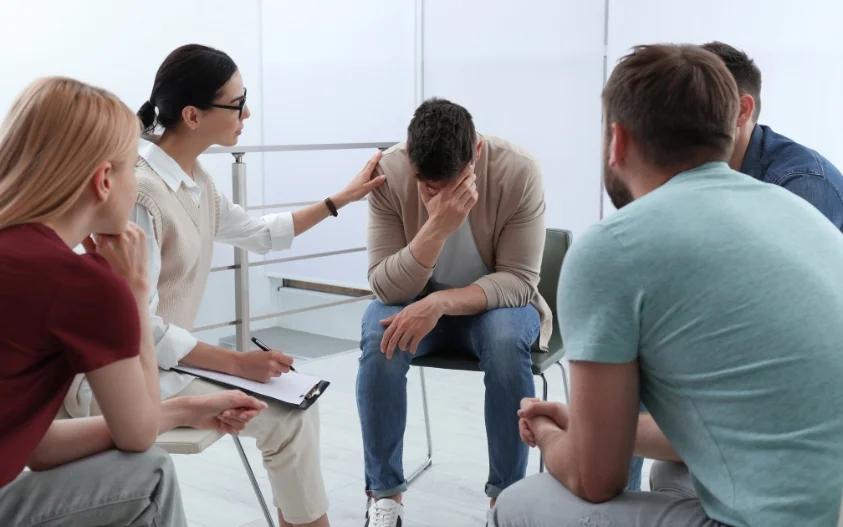24/7 Helpline:
(866) 899-221924/7 Helpline:
(866) 899-2219
Learn more about Group Therapy centers in Mcgregor

Other Insurance Options

Anthem

Medical Mutual of Ohio

Private insurance

GEHA

BlueShield

Horizon Healthcare Service

Choice Care Network

Covered California

Magellan

BlueCross

Molina Healthcare
Beacon

Sliding scale payment assistance

Multiplan

UMR

BHS | Behavioral Health Systems

Group Health Incorporated

Magellan Health

Oxford

Aetna






































Northland Counseling Center – Aitkin
Northland Counseling Center - Bunker Hill Drive offers outpatient treatment for individuals with alc...






















